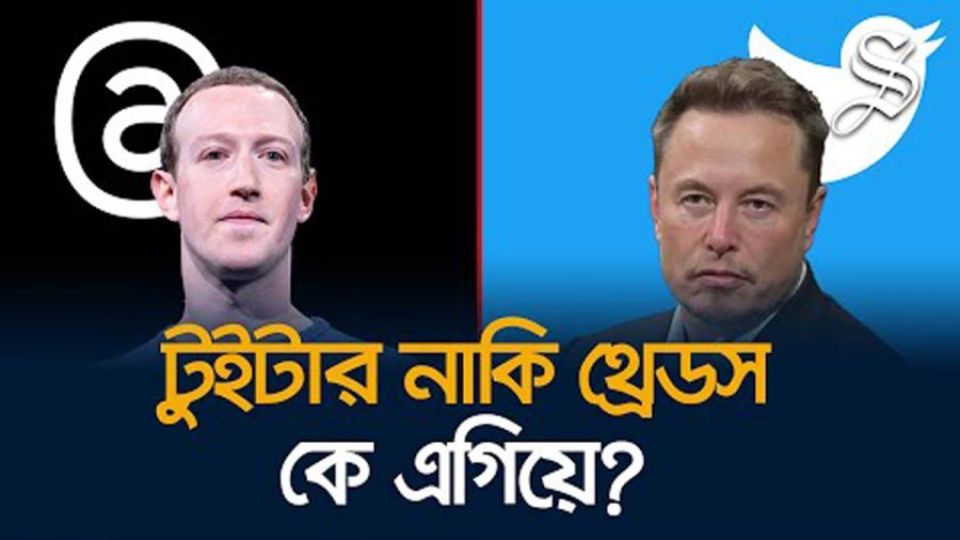July 10, 2023
DHAKA – Instagram’s much-hyped microblogging app, Threads has been officially launched, and it looks a lot like Elon Musk’s Twitter. According to AP News, Meta Platform’s CEO Mark Zuckerberg said that around 10 million people have registered for Threads in the first seven hours of its launch. So, does it have a real chance to overtake Twitter?
In late October 2022, Elon Musk officially took over Twitter and decided to make some major changes. Among them, what stands out the most is Musk’s decision to remove the blue check marks that verified the identities of prominent users, making the check marks available to those who pay a subscription fee of $8 per month.
Again, last weekend Twitter started limiting the number of tweets we can read—certainly, a questionable business decision, which has quickly become unpopular with many users, as for years, Twitter has been a popular platform for ordinary people to read real-time news and engage in meaningful conversation with celebrities, business leaders, and newsmakers.
While both Threads and Twitter share some similarities such as short-form content, Threads require users to have an Instagram account, as it is directly linked to this popular photo-sharing platform. Hence, deleting Threads results in the deletion of the associated Instagram account. Funnily, it seems to me that Threads is holding our Instagram account hostage!
However, Twitter is not linked to any other social media platform, so you can sign up (independently) using the credential of your choice. Although Threads has gained attention and attracted millions of users since its launch, the question remains: whether Threads can replace Twitter and become a major player in the social media landscape or not.
One key advantage Threads has over Twitter is that the character limit for Threads is 500, whereas, for Twitter, the limit is just 280. This multimedia feature sets Threads apart from Twitter and provides users with an expansive option for expressing themselves.
But above all, the magic of Twitter was that it used to be a place where world leaders with immense power, A-list celebrities, and everyday online users could engage in conversation about the news of the day or any trending topic. And frankly, we have (quite fully) lost that privilege.
So, will Threads live up to our expectations and win our trust back? I guess we will have to wait and see what Meta comes up with next.
It is worth noting that Threads currently lacks certain features present on Twitter, such as direct messaging and support for hashtags. Again, another challenge for Threads is that transferring and rebuilding an audience on a new platform can be a massive hurdle and users’ loyalty to a specific platform—in this case, Twitter—also plays a crucial role. Meta needs to consider this and innovate something new and different, which will pull social media users towards Threads.
While Threads can become a significant player in the social media landscape and provide an alternative to Twitter—its ability to replace Twitter largely remains uncertain. Only time will reveal the extent to which Threads can establish itself as a dominant player in the text-based social networking arena.


